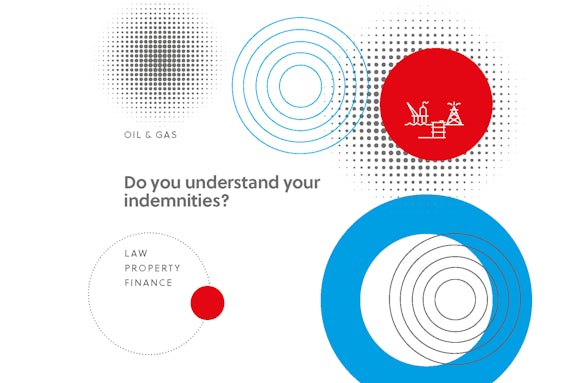What is an indemnity?
An indemnity is a promise to be responsible for another person’s loss, which means paying money to that party. This can be hugely expensive and unpredictable in the offshore oil & gas industry. To inject some certainty over costs and liabilities, the industry has largely adopted “mutual hold harmless” provisions in its contracts. Notably, such provisions are adopted by the LOGIC standard forms (see below).
What is “mutual hold harmless”?
Regardless of it being your fault, the other guy is responsible for any damage to his property!
Sounds good, but then it will normally (and should) be reciprocal. Is that fair?
That’s the nature of “mutual hold harmless” (MHH) clauses in offshore oil and gas service contracts.
At a high level, it is actually quite simple:
- The Contractor is responsible for any damage to its property or injury to its people (and its “Group”);
- The Company is responsible for any damage to its property or injury to its people (and its “Group”);
- Each party is responsible for its Group’s own pollution;
- In relation to loss or damage caused to third parties (i.e. anyone outside the Group), it is usual for the party at fault to be responsible for the damage they cause. Risk can be mitigated against if you sign up to the IMHH (more on that below).
(There are, of course, exceptions to this in the shape of Wilful Misconduct carve outs, responsibility for blow-outs / downhole damage and others – look out for further discussion on a separate blog.)
Why use MHH?
The industry adopted this model for the following reasons:
- Certainty: A clear indemnities clause ensures that each party knows where it stands.
- Reduced Costs: Most potential risks then need to be insured only once and by one party rather than multiple insurance policies across the parties covering the same risks. Each party knows its assets and the level of insurance required.
- Protecting the Industry: The supply chain is absolutely crucial in the securing the future of the industry and that includes supply chain companies of all sizes. Without mutual hold harmless indemnities, smaller companies could be faced with the choice of taking on potential risks that could sink their business or taking out costly insurance policies to cover risks already covered by the insurance policies of the E&P companies. Either way, it puts those companies’ survival at risk.
What are the insurance implications?
Be sure to discuss your indemnities with your insurers to ensure:
- Insurance policies are aligned;
- Subrogation rights are properly addressed to ensure indemnities are not undermined.
Pay close attention to MHH provisions
When conducting contract reviews, pay close attention – a pure “mutual hold harmless” model is a great place to start.
The indemnities provisions are among the most important in your offshore service contracts. The crafting of these clauses needs special care. If the worst happens, you need to be certain that you are fully protected.
LOGIC Standard Contracts
You can find more information on LOGIC Standard form of Contract
Industry Mutual Hold Harmless Deed
If you are a contractor providing services offshore in UKCS, make sure you are aware of the Industry Mutual Hold Harmless (IMHH) Deed and consider signing up. It creates the “mutual hold harmless” regime between you and other contractors who you may be working alongside.








